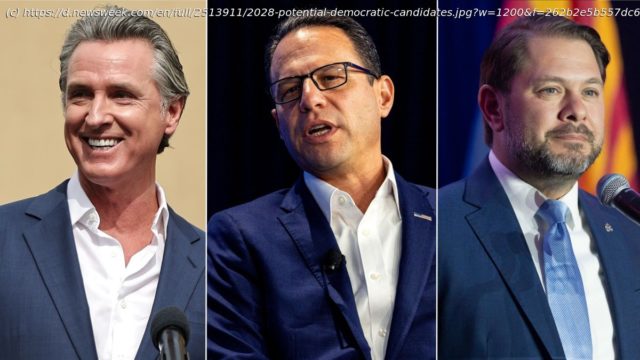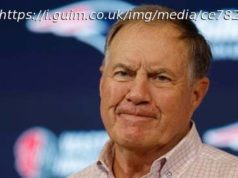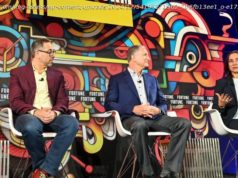Newsweek takes a look at how the Democratic Party could try to bounce back in 2028 after its stinging defeat against Trump this election cycle.
As the 2024 presidential race draws to a close with a Donald Trump victory that could well signal a realignment of the American electorate, the Democratic Party is likely to be forced to rethink its strategy, policies and values over the years to come.
After an election night that only brought bad news for Kamala Harris, The Associated Press declared Trump as the race’s winner overnight after he reached the necessary 270 electoral college votes to make it back to the White House. As of the time of this article’s publication, Trump had 277 electoral college votes and 51.0 percent of the vote against Harris’ 224 electoral college votes and 47.5 percent of the vote.
While it’s too early to say what will happen in the next four years and in 2028, it’s worth thinking about who will be the figure to incarnate this change for Democrats, trying to stage a comeback for a party now licking its wounds.
Below is a list of possible Democratic presidential candidates in 2028, based on names that have come up when Joe Biden withdrew from the race earlier this year and high-profile Democrats.
While Harris could once again try to win the presidency in 2028, we didn’t include her in the following list as, at the moment, we believe that her candidacy would be unlikely after this election’s stinging defeat.Gavin Newsom
The 57-year-old California governor has spent years seeking a national stage, and after Biden’s poor performance during his one debate against Trump earlier this year was rumored to be a potential candidate for the presidential ticket. While Newsom didn’t put his name forward and backed Harris as the Democratic candidate, the ambitious two-time governor is still considered likely to reach for the White House at one point in his career.
In California, Newsom has been known for his progressive policies on gun control and environmental issues, though he has recently abandoned some of his most progressive political stances to appeal to swing voters and trying to fix ongoing challenges like spiraling homelessness in the Golden State.
Though his popularity has risen at the national level in recent years, Californians have soured on his leadership, especially as they worry about the state’s large budget deficit. A poll conducted by Berkeley Institute of Governmental Studies in January found that 47 percent of registered California voters disapproved of Newsom’s leadership, while 46 percent approved.






